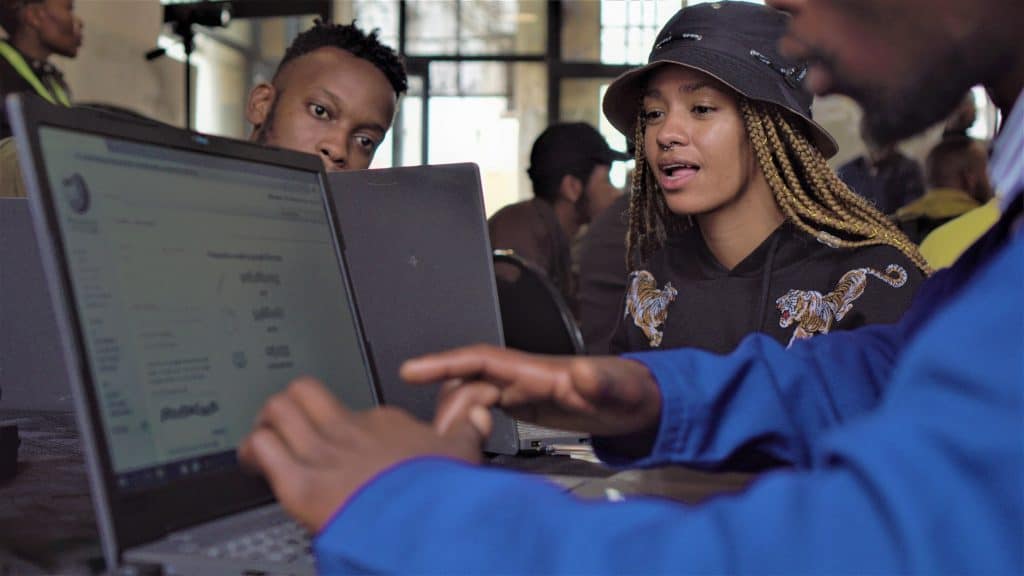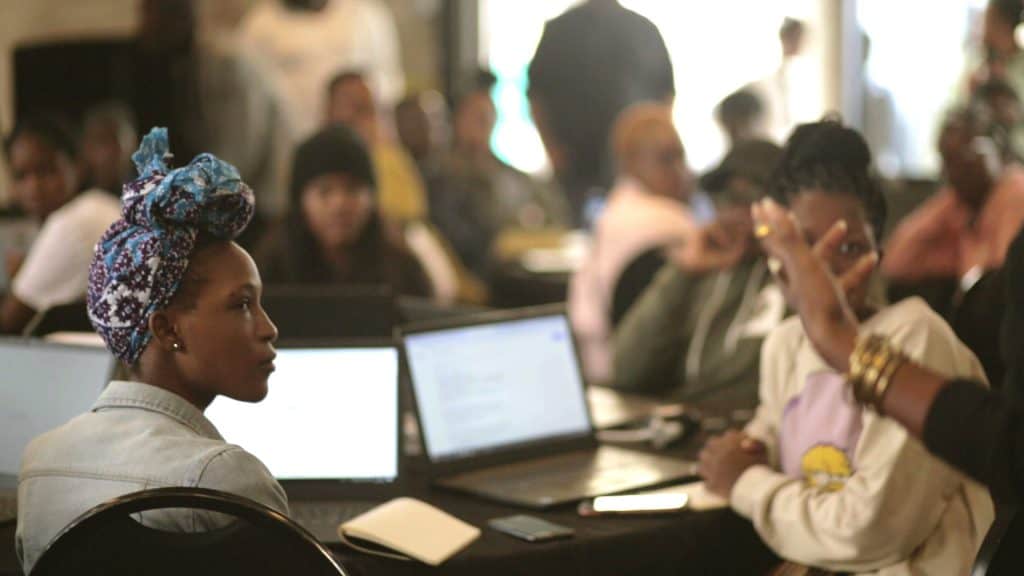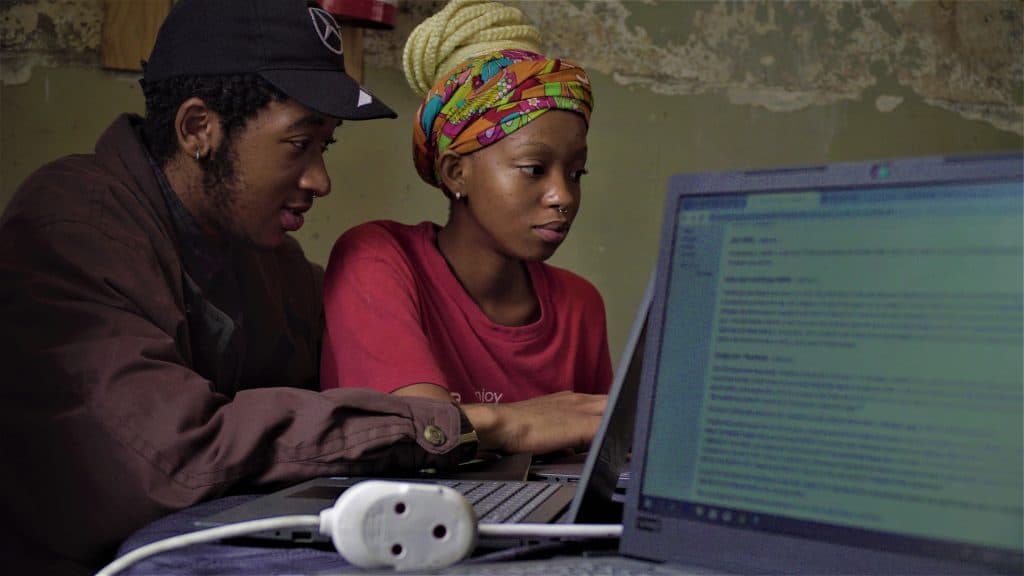In a world where information plays an integral role in shaping our understanding of distant lands, a group of unsung heroes is striving relentlessly but silently to rewrite the narrative of an entire continent. Africa’s Wikipedia editors have decided to revolutionize the global perception of their diverse and vibrant homeland.
Armed with keyboards and an intense passion for accuracy, these dedicated people are challenging stereotypes, shedding a lot of light on untold stories, and introducing the rich tapestry of Africa’s culture, history, and achievements to the forefront.
Through their unwavering efforts, they are steadily reshaping the virtual landscape, changing how the world sees Africa, and opening doors to a greater appreciation of its boundless potential. A grassroots movement has enlisted Africans to write their story on one of the biggest websites in the world.
Several years ago, while working in Uganda on an emergency relief program, Adama Sanneh had an epiphany. He said that he had a strange feeling and even wondered whether he was on the wrong side of history.
Sanneh was born and raised in Milan to a Catholic Italian mother and a Muslim Senegalese-Gambian father. He had always reveled in adventure, diversity, and knowledge. However, while working in East Africa a realization came to him: his knowledge of Africa, just like many others, scarcely scratched the surface of the continent’s reality.

He noted that the information about Africa’s lively politics, diverse languages, colorful cultures, and more than one billion citizens was scarce. Furthermore, a lot of the information that was available came from a Western perspective in the prisms of foreign publications, academia, journalism, and entertainment.
That realization pushed Sanneh to set out to transform Africans from “passive knowledge consumers to active knowledge producers.”
Their primary tool of choice is Wikipedia. This platform is the most widely used reference compendium globally, and one of the few spaces where Africans can readily write and edit the thriving story of their continent.
Related: CyberKongz Welcomed to Africarare, Africa;s First Metaverse
Interestingly, Wikipedia’s English platform attracts an average of seven billion page views monthly, which makes it one of the most visited websites in the world.
Sanneh points out that there is an outright lack of information about Africa, which stands in stark contrast to the lots of information available on Wikipedia about France alone. In that context, since 2018, the WikiAfrica Education initiative has been striving to change all that by organizing and enlisting a new generation of Wikipedia editors who are based in Africa.
Moleskine Foundation funds the initiative which is a strongly creative attempt to decentralize Wikipedia. In turn, the knowledge of the African continent is enhanced through contributions from the people who know the place best with firsthand experiences.
Thwarted By Negative News
The initiative’s flagship event, AfroCuration, hosts edit-a-thons where youths create and edit different encyclopedic content for Wikipedia in English and different indigenous languages. The first event happened in October 2019.
More than 120 students between 15 and 18 years old wrote Wikipedia profiles about South African history-makers, some whose biographies were not published on the website, and others like anti-apartheid activists Winnie Mandela and Steve Biko, which required some expansion.
Those who participated in the maiden edit-a-thon were educated about freedom, democracy, and constitution-making. Also, they were taught how to translate what they learned into Tshivenda, siSwati, isiZulu, isiXhosa, Sesotho, and Afrikaans.

The Constitution Hill Trust in Johannesburg, which was previously a prison complex and currently a revered cultural heritage site, hosted multiple edit-a-thons. Distinguished individuals such as activists Dumisa Ntsebeza and Justice Edwin Cameron graced the event. They shared their priceless firsthand insights into South Africa’s constitution and various historical events.
Empowered greatly by the newfound knowledge, young participants created collaborative teams to help enrich Wikipedia entries primarily dedicated to the influential figures who helped shape their country’s democracy.
Sanneh remembered:
“These young people had the chance to, first of all, go there and learn about the constitution through the voices and stories of incredible people like Judge Edwin Cameron, who is the former constitutional judge in South Africa.”
Strategic partnerships with groups such as Constitution Hill Trust have been important to the endeavor’s success. Other partners included Wikimedia ZA, the South Africa Wikimedia chapter, which offered technical assistance and language editors, and BRIDGE, which is a non-profit organization that is dedicated to enhancing teaching and learning in the nation.
One historian and constitutional lawyer at Constitution Hill Trust, Lwando Xaso, stated:
“We saw that there was alignment with our work on constitutionalism and [BRIDGE’s] work on education.”
With the assistance from these groups, the participants were taught about freedom, democracy, and constitution-making, and educated on how to translate what they learned into 112 entries in local languages and expand existing English entries.
The next AfroCuration event was themed “Writing Black Women into History.” The event was hosted in partnership with Afropunk Army, a volunteer segment of the global music Afropunk Festival, on December 29, 2019, in Johannesburg.
During the edit-a-thon, 70 volunteers aged between 18 and 25 set up 71 new entries for various women, from South African jazz legend Letta Mbulu to executive director of UN Women Phumzile Mlambo-Ngcuka.
Perry-Mason Adams, an Afropunk volunteer who participated in the event, said:
“I remembered thinking, what an amazing, amazing initiative. What a way to use and preserve the language. So for me, it was a breathtaking initiative.”
Adams was highly inspired and registered to participate in a future AfroCuration event. Sadly, when the pandemic struck, WikiAfrica’s boisterous, physical edit-a-thons shut down. This event went remote, and shifted to translating pandemic articles into Indigenous African languages. Volunteers were acquired via an Africa-wide social media campaign titled “The solution will not be televised.”
Related:6 Ways Social Media has Positive Effects on Our Lives
Adams, 29, participated in this effort with assistance from his mother and community in Pretoria as he tried isiZulu and Xhosa translations remotely. He explained:
“I did the article in collaboration with my mom. She helped me translate the contents into isiZulu. I’d translate and she’d read, proofread the stuff for me and be like, ‘Okay, this sounds right. Let’s put that.’”

He got help from native speakers in his neighborhood for the Xhosa translations. He added:
“I learned a lot and it made me appreciate the language.”
Other young people had similar experiences. In Tamale, Ghana, 27-year-old university student Hajara Baba wants her native Dagbani language, with three million native speakers, internationally recognized. Her efforts highlight some of the less appreciated benefits of Wikipedia due to the site’s massive reach. The presence of language on it has a massive multiplying effect on the language’s use on other websites and platforms.
In 2022, Baba translated pandemic articles into Dagbani. She joined 390 volunteers from around Africa who produced 145 new articles about coronavirus across 16 native African languages, gaining a million views.
Wikipedia has a low barrier to entry for Indigenous African languages. Sanneh said:
“It’s much easier to upload an entry in Venda or in Yoruba or Zulu compared to doing the same thing in English. The scrutiny that you have in English is higher.”
But, citation poses a huge challenge. Xaso, also the program curator, said:
“I think from a legal perspective, there is a need to widen what is considered a legitimate source for citation for Wikipedia, because in Africa, oral history is just as important as what’s found in textbooks. You’d find that Indigenous forms of knowledge are being excluded because they do not fit a Western idea of what a legitimate source is.”
Despite all that, Sanneh’s dream of increasing knowledge about Africa, as told by the Africans themselves, is becoming a welcomed reality an entry at a time. He explained:
“Our vision is to say that, through technology, young people will have enough access to resources to check in their own language, to really think about their own lives and build a greater life and become the citizen that they want.”








